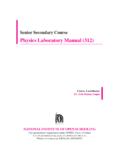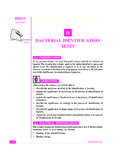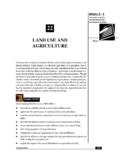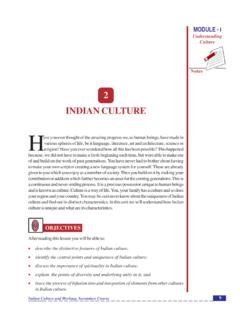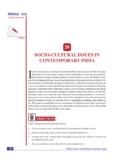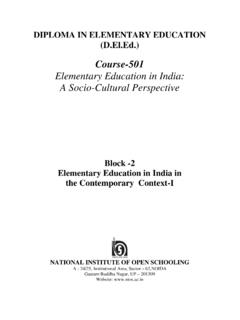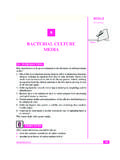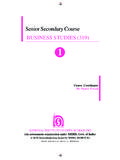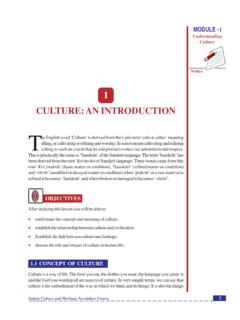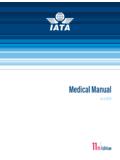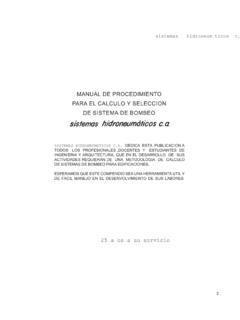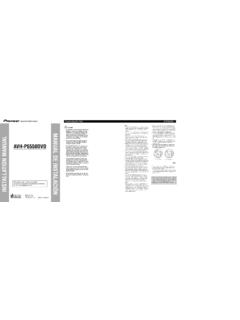Transcription of DIPLOMA IN ELEMENTARY EDUCATION (D.El.Ed.)
1 DIPLOMA IN ELEMENTARY EDUCATION . ( ). Personal Contact Programme (PCP). &. Practical Manuals (SBA, WBA, PT). NATIONAL INSTITUTE OF OPEN SCHOOLING. A - 24/25, Institutional Area, Sector 62,NOIDA. Gautam Buddha Nagar, UP 201309. Website: EXPERT COMMITTEE. Dr. Sitansu S. Jena Prof. G. Ravindra Chairman, NIOS, NOIDA Former Director, NCERT Sr. Consultant Prof. Chaudhary Dr. KuldeepAgarwal (Teacher EDUCATION ). Former Vice-Chairperson , Director(Academic), NIOS, NOIDA. NCTE, New Delhi NIOS, NOIDA Dr. Kanchan Bala Prof. Panda Executive Officer STRIDE IGNOU (Teacher EDUCATION ), NIOS, NOIDA. WRITER. Dr. Kanchan Bala Executive Officer (Teacher EDUCATION ) Academic Department, NIOS, NOIDA. CONTENT EDITOR. Prof. Sh. G. S. Mohapatra Sr. Consultant (Teacher EDUCATION ) Academic Former Principal of Teachers' Training College, Department, NIOS, NOIDA Cuttack LANGUAGE EDITOR. Dr. Anil Kumar Teotia Dr. Satyavir Singh Senior Lecturer, SCERT, Principal, Shri Nehru Inter College, Pilana Bhagpat, Delhi PROGRAMME COORDINATOR.
2 Dr. KuldeepAgarwal Prof. Dr. Kanchan Bala Director(Academic), Sr. Consultant (Teacher EDUCATION ), Executive Officer (Teacher NIOS, NOIDA Academic Department, NIOS, EDUCATION ), Academic NOIDA Department, NIOS, NOIDA. COVER CONCEPTUALISATION & DESIGNING. Mr. Upreti Publication Officer, Printing, NIOS. Mr. Dhramanand Joshi Executive Assistant, Printing, NIOS. TYPESETTING. M/S Shivam Graphics 431, Rishi Nagar, Delhi-34. SECRETARIAL ASSISTANCE. Ms. Sushma Junior Assistant, Academic Department, NIOS. The Chairman's Message .. WELCOME TO NIOS. Dear Learner The National Institute of Open Schooling (NIOS) is an autonomous organization under the Government of India, Ministry of Human Resource Development (MHRD). It is the largest open schooling system in the world with around million learners currently on roll at the secondary and senior secondary level. The NIOS has national and international network with more than 15 Regional Centres, 2 Sub-Centres and about 5,000 Study Centres for its Academic and Vocational Programme within and outside the country.
3 It provides access to learner-centric quality EDUCATION , skill up-gradation and training through open and distance learning mode. The delivery of its programmes is through printed material coupled with face-to-face tutoring (Personal Contact Programmes), supplemented by use of Information and Communication Technology- Audio/Video Cassettes, Radio Broadcast and Telecast etc. The NIOS has been vested with the authority to train the untrained teachers at ELEMENTARY Level. The training package for Programme has been developed by the NIOS in collaboration with other agencies working in field. The Institute offers a very innovative and challenging Two- year DIPLOMA in ELEMENTARY EDUCATION Programme for in-service untrained teachers in different states according to Right to EDUCATION Act (RTE) 2009. I take the pleasure of welcoming you all to this DIPLOMA Course in ELEMENTARY EDUCATION Programme of National Institute of Open Schooling (NIOS).
4 I appreciate your contribution in ELEMENTARY schooling of the children of your state. As per RTE Act 2009, it becomes essential for all school teachers to be professionally trained. We understand that your experience as a teacher has already given you requisite skills needed to be a good teacher. Since it is now mandatory by law, you will have to complete this course. I am sure your knowledge and experience, so far accumulated by you, will certainly help you in this Programme. This Programme is through Open Distance Learning (ODL) mode and provides you ample opportunity to be professionally trained without being disturbed from your regular working as a teacher. The self-instructional materials developed specifically for your use would be helpful in creating understanding and help you in becoming a good teacher apart from becoming qualified for your job. Best of luck in this great endeavour!! Jena Chairman (NIOS).
5 CONTENTS. Activities Page No. 1. Personal Contact Programme (PCP) 1. 2. School Based Activities 9. 3. Workshop Based Activities (WBA) 24. 4. Practice Teaching 44. Personal Contact Programme (Tutoring Sessions). INTRODUCTION. The Personal Contact Programme (PCP) in Open and Distance EDUCATION System is specially meant for supporting and facilitating you, as a distant learner and to solve your problems which you face during your self-study. Through the PCP you get an opportunity to interact with tutors/ resource person as well as the peer group. You will appreciate that the use of the word contact' rather than teaching' itself makes a categorical distinction between the traditional classroom teaching and the PCP. In fact, this is a programme where you all come together to share your learning experiences, find solutions to academic problems and remove the barriers in your learning activities. Face-to- face interaction takes place both in and outside the classroom.
6 The Resource Persons engaged in the programme are identified from the faculty of DIETs and PTTIs who are quite experienced people from whom you can avail effective guidance. Hence, depending upon the need of the individual learners, the PCP could provide a forum to interact with tutor and peers for personalised care and problem solving. Depending upon the course, these are made compulsory for attending and these are always a great help to the learners. Therefore, it becomes very important, first, to understand the objectives of PCP in order to make the programme effective. PCP tutorials are spread over Sundays and other holidays or at such convenient times when most of you will be able to draw benefit by attending the sessions. i. Opportunities come rarely in life and avail them at once without any delay or hesitation. PCP is such an opportunity for you. ii. The theoretical discussions made in the PCP sessions will help you a lot in doing School Based Activities (SBA), Workshop Based Activities (WBA) and Practice Teaching (PT).
7 Exercise. You should, therefore, attend 100 percent sessions of PCP. OBJECTIVES OF PCP. You have to attend the PCP compulsory. Though there is no specific assignment of credit to PCP, still there is a lot of weightage given to it. Attendance in these sessions is compulsory. You have to attend the minimum of 75 percent of PCP/tutorial sessions without which you will not be allowed to appear in terminal examinations. The objectives of PCP are to enable you : i. to get opportunities to interact with Resource Persons/tutors and fellow professionals and thus, to overcome the feeling of isolation; thus help in getting better perspective about the role of a teacher;. ii. to deal with academic problems and opportunities to clarify doubts;. iii. to seek tutors' guidance in learning and completing assignments;. iv. to develop confidence and get motivated for self-study;. v. to use the library and ICT resource available at the study centre to facilitate your learning.
8 Vi. to get feedback on your progress individually as well as in groups;. vii. to prepare well for term end examinations. 2 DIPLOMA in ELEMENTARY EDUCATION ( ). IMPORTANCE AND ACTIVITIES OF PCP. By attending PCP, you can i. avail opportunities to have interaction to know your peers (classmates) and tutors/resource persons will definitely free you from the feeling of isolation at home and tension about your studies. ii. know many things about the programme during the course of interaction in PCP. iii. discuss with the peers and tutors about the styles and strategies of self-study and solution of your study related problems. iv. clarify your doubts relating to hard spots that you have come across in the course books from the tutors. v. get tips about the Course Based Assignments and School Based Activities(SBA) from the tutors. vi. use the library and ICT resources available at the study centre to enrich your knowledge and skills.
9 Vii. assess yourself about your progress in studies which would definitely help you in planning for further improvement. viii. plan well for Term-End Examination and prepare accordingly. ix. gain self-confidence by attending PCP sessions; whereby you can do better in your performance. x. have a strong theoretical knowledge to do the School Based Activities (SBA), Workshop Based Activities (WBA) and Practice Teaching (PT). Please bring with you the PCP session 10-12 white sheets paper, a long size notebook, pen, pencil, eraser, scale, stapler with pin and other required reading-writing materials. Please bring with you the Identity Card, Programme Guide, Practical Manual and corresponding study material as per the given schedule. Please with you the telephone numbers of some peers, whom you think that they are helpful at the time of need and you may contact them for academic help whenever needed. MAIN COMPONENTS OF PCP.
10 The PCP/tutoring sessions start from the second month of commencement of the course till the tenth month before the term-end examination mostly on Sundays and other holidays. It is having two distinct components: a) Pre-tutoring situations b) Tutorial Sessions The Pre -tutoring situations Jobs to do prior to the PCP. You are advised to do the following jobs prior to the PCP: i. to be in close touch with your study centre/co-ordinator. Personal Contact Programme (PCP) 3. ii. to read the Programme Guide thoroughly and note down the points for clarification during PCP. iii. to collect information from the study centre about the date of commencement of the PCP and make prior preparation for it. iv. to keep yourself totally free on the dates of PCP so as to enable you to attend all the 15 days of PCP. v. to go through the study materials (line-by-line and page-by-page) sincerely and note down the genuine points for clarification in the PCP.
